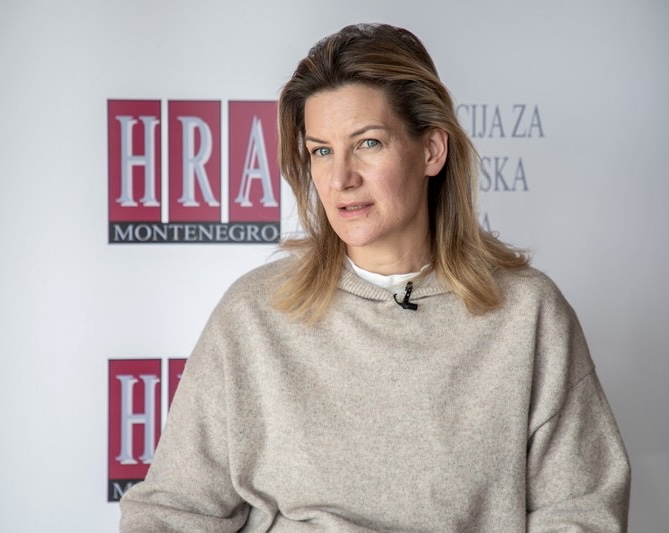
CoE report urges Montenegro to investigate cases of police brutality
09/07/2023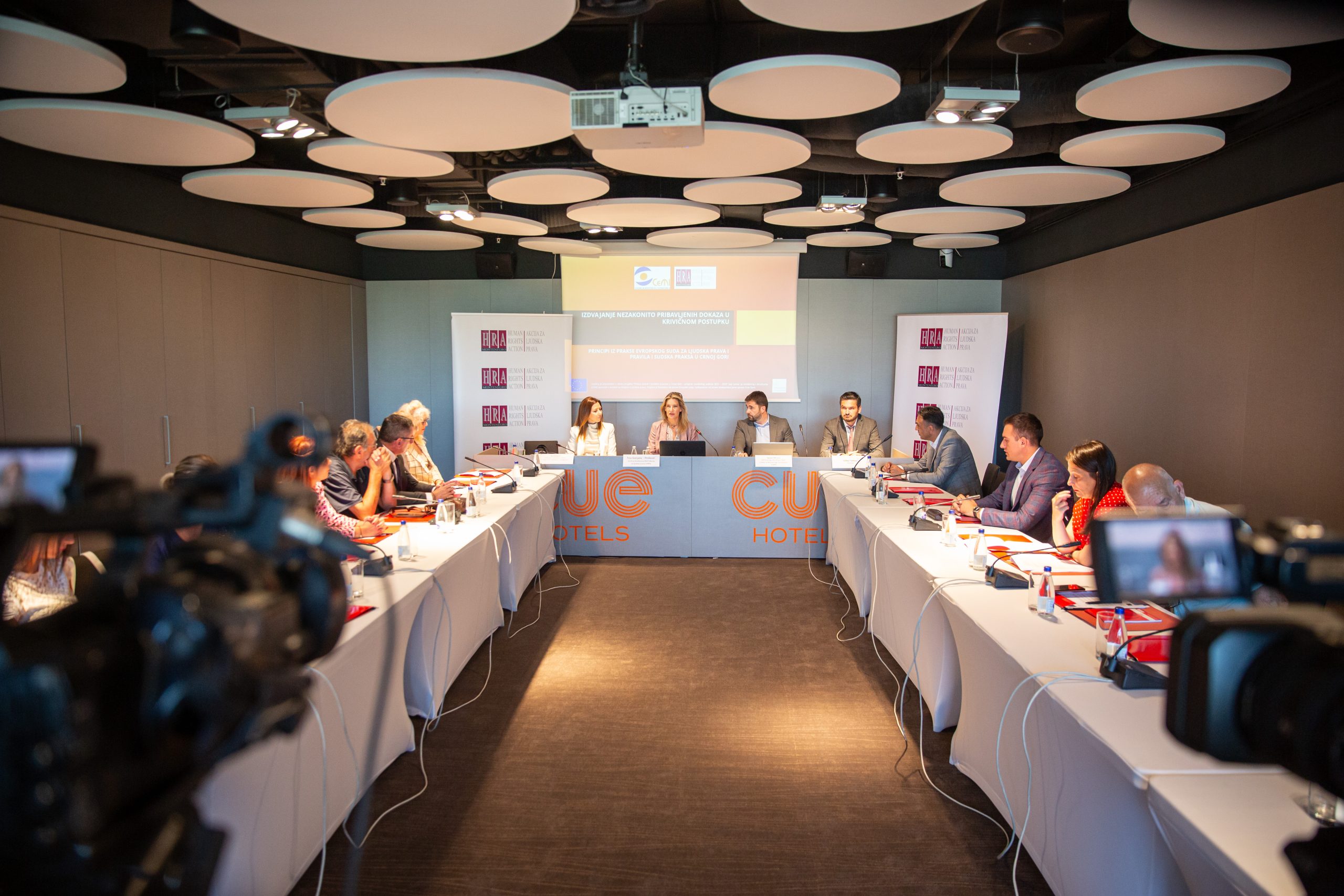
PRESENTATION OF THE HRA REPORT ON THE EXCLUSION OF ILLEGALLY OBTAINED EVIDENCE IN CRIMINAL PROCEEDINGS: The practice of the Court in Strasbourg should not be used to justify violation of domestic procedural rules
12/07/202328 years since the genocide in Srebrenica – Montenegro to establish memorial day
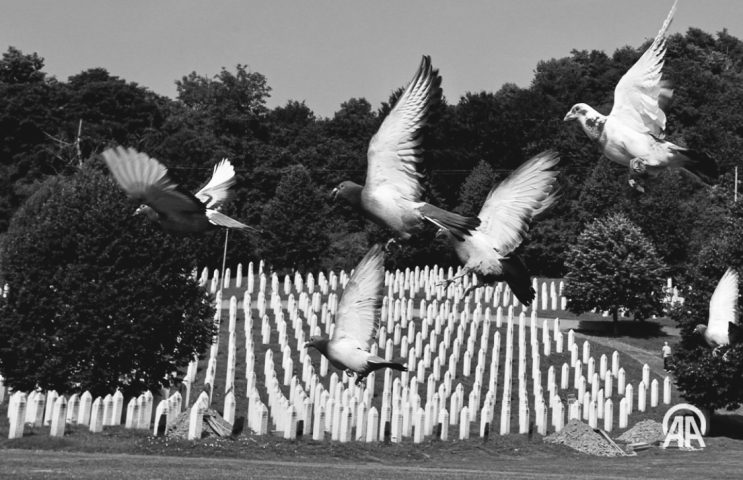
Human Rights Action (HRA), Centre for Civic Education (CCE), and ANIMA – Center for Women’s and Peace Education, on the occasion of the 28th anniversary of the genocide in Srebrenica, pay tribute to all victims and express solidarity with the survivors and their families. And this year, the persistence and courage of the families in searching for the missing and their suffering in identifying the tragic victims cause the deepest respect.
We remind that the appeal we sent last year to the Parliament and the Government of Montenegro to officially declare 11 July as the day of remembrance for the victims of the genocide in Srebrenica was not adopted, eventhough it is foreseen in Article 5 of the Resolution on the Genocide in Srebrenica, passed by the Parliament of Montenegro in 2021. We expect the new parliamentary convocation and the new Government to show more awareness and responsibility towards the memorialization of this enormous crime. We expect officials to show the same attitude towards all war crimes from our recent history, regardless of the ethnicity of the victims.
It is the duty of all of us to fight for justice and the truth about Srebrenica, because facing the facts about the crimes and respecting the rights of the victims and their families is the foundation on which every democratic society is built, especially societies devastated by the horrors of war.
“Thousands of men executed and buried in mass graves, hundreds of men buried alive, men and women mutilated and slaughtered, children killed before their mothers’ eyes, a grandfather forced to eat his grandson’s liver. These are truly scenes from hell, written on the darkest pages of human history,” said the judge of the International Criminal Tribunal for the former Yugoslavia, Fouad Riad, after confirming the indictment for Srebrenica against Mladić and Bosnian Serb leader Radovan Karadžić.
Members of the Army of the Republika Srpska (VRS) from 11 to 19 July 1995, systematically killed over eight thousand unarmed Bosniaks aged 14 to 70. More than six hundred children were killed, and the youngest victim was a baby, born on 13 July 1995, exhumed from a mass grave near Srebrenica in 2012. This crime was determined by the judgments of the International Criminal Tribunal for the former Yugoslavia (the so-called Hague Tribunal) and the judgment of the International Court of Justice. The national courts of Bosnia and Herzegovina, Serbia, Germany, Austria, Switzerland, and the Netherlands also found that genocide and other war crimes were committed in Srebrenica.
In Bosnia and Herzegovina, 25 people were convicted for the crimes in Srebrenica, 13 of them for genocide, while in Serbia, five people were convicted for the war crimes in Srebrenica. In 2017, a court in the Netherlands also found that the Netherlands bears partial responsibility for the death of 300 Bosniaks killed in Srebrenica, who were inside the UN-protected zone at the UN base in Potočari because its soldiers in the UN did not prevent those people from being killed. On 18 June this year, the Dutch government officially apologized to the Netherlands soldiers who were sent as part of the UN peacekeeping forces to defend the Bosnian enclave of Srebrenica with insufficient weapons and human resources to keep the peace.
HRA, ANIMA, and CCE point out as a positive development of events in Montenegro the adoption of the Declaration on the acceptance of the resolution of the European Parliament (EP) on Srebrenica in 2009 and the Resolution on the genocide in Srebrenica in 2021 by the Parliament of Montenegro, as well as the dismissal of the former Minister of Justice, human and minority rights, Vladimir Leposavić, because of the relativization of that genocide.
HRA, ANIMA, and CCE indicate that it is crucially important to insist on determining the responsibility of all those who in various ways contributed to the genocide in Srebrenica, but also those who today glorify it through the affirmation of the ideology on which the crime was committed. It is necessary to cultivate a culture of memory of the victims, especially in a society whose educational system has not yet recognized or adequately processed either this or other war crimes from modern history, which is already producing serious and negative consequences.
HRA, ANIMA, and CCE appeal to all actors to invest greater efforts in the reconciliation process. Truth, dealing with the past, and justice for the victims must be fundamental components of that process. Only through honest reflection, recognition of responsibility, and building bridges between the societies of the region, we can create sustainable reconciliation. We must all take responsibility for shaping a future where such crimes will not happen again.
The Srebrenica victims oblige us to advocate for justice, truth, and reconciliation, to work towards the creation of a society in which every person is respected, regardless of their national, religious, or ethnic affiliation.
Representatives of our non-governmental organizations joined the commemoration of the Srebrenica Memorial Day organized by the Bosniak Council today at the Memorial Park for Civilian Victims on Pobrežje, in Podgorica.
Human Rights Action (HRA)
Centre for Civic Education (CCE)
ANIMA – Center for Women’s and Peace Education


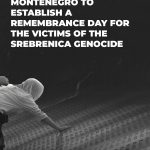

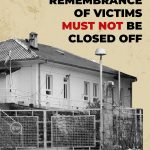


 English
English